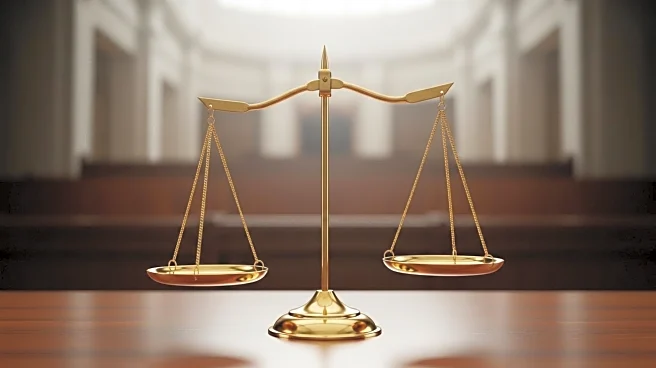What is the story about?
What's Happening?
A federal appeals court has ruled that National Guard troops in Illinois can remain under federal control but cannot be deployed, as the legal battle between the Trump administration and the state continues. The Seventh Circuit Court of Appeals temporarily paused a lower court's order that halted deployments of National Guard troops in Illinois for two weeks. This decision is part of a broader legal conflict over President Trump's authority to deploy troops to manage protests near ICE facilities in cities like Chicago and Portland. The Trump administration had filed an appeal against US District Court Judge April Perry's decision to block the deployment, citing a lack of credible evidence of rebellion in Illinois. The situation is further complicated by similar legal proceedings on the West Coast, where the Ninth Circuit Court of Appeals is considering whether to block the federalization of the Oregon National Guard.
Why It's Important?
The ruling highlights the ongoing tension between federal and state authorities regarding the deployment of military forces within the United States. The decision to keep National Guard troops federalized but not deployed underscores the legal complexities surrounding presidential powers and state sovereignty. This case could set a precedent for future disputes over federal authority in domestic matters, particularly in situations involving civil unrest. The outcome may influence how federal resources are utilized in response to protests and could impact the relationship between the federal government and states governed by opposing political parties.
What's Next?
The legal proceedings are expected to continue as the Trump administration seeks to assert its authority to deploy National Guard troops. The Ninth Circuit Court of Appeals is still deliberating on a similar case involving the Oregon National Guard, with a decision anticipated soon. State leaders and legal experts are closely monitoring these developments, which could lead to further court challenges and political debates over the scope of presidential powers. The situation may also prompt discussions on the balance between federal intervention and state autonomy in addressing civil unrest.
















